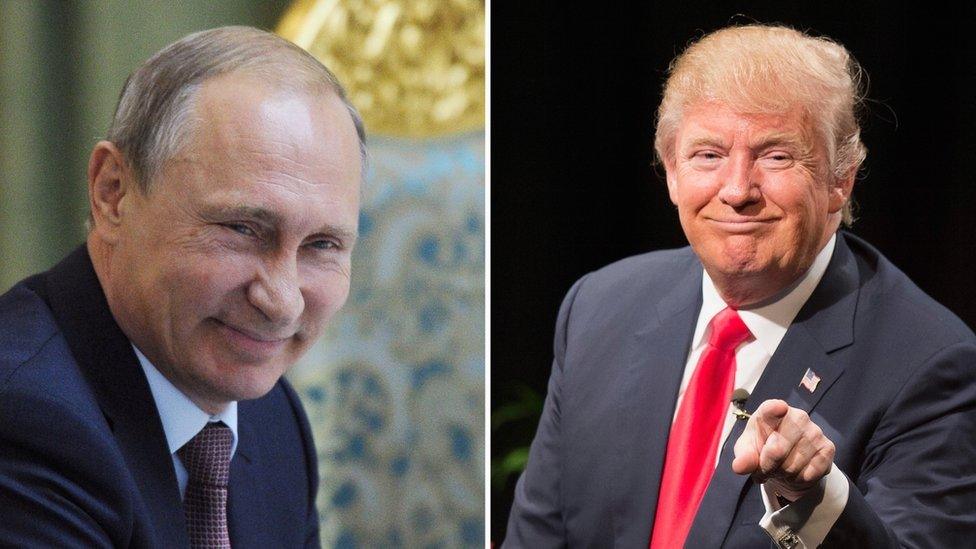Will Russia now cool its anti-US propaganda?
- Published
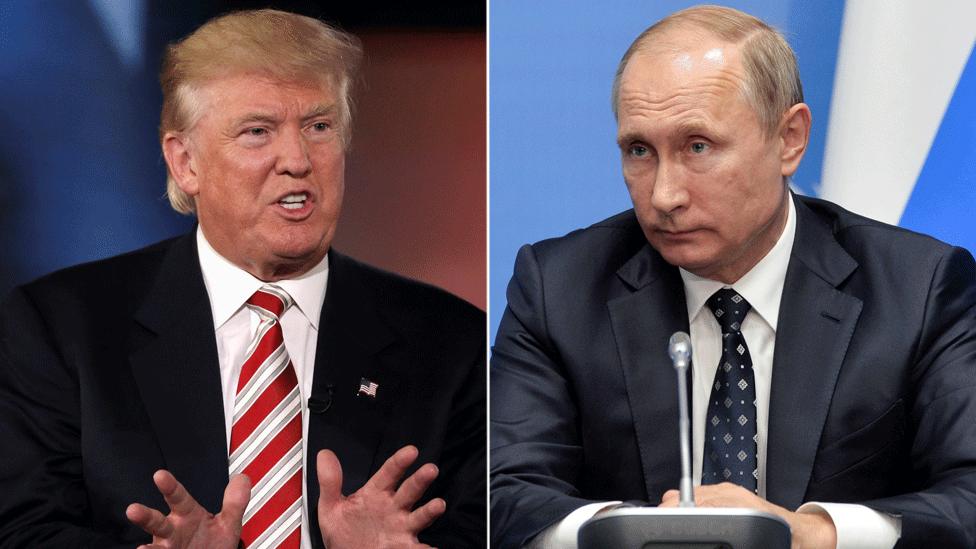
Donald Trump praised Vladimir Putin during the election campaign
Relations between Russia and the United States have been reaching Cold War temperatures. But with the election of Donald Trump, there are hopes on both sides they might now improve.
However, Russia's military intervention in Ukraine - and more recently Syria - makes that very challenging.
Indeed before polling day, relations appeared to take a turn for the worse, suggesting improved relations will be very difficult.
Is Russia's Syrian gambit paying dividends?
Trump and Putin 'will try to mend ties'
Air strike 'kills civilians near Raqqa'
How Moscow’s Syria bombing campaign has paid off for Putin
News that Russia has renewed its bombing campaign in Syria may also make it harder, certainly for US military commanders who view Russia as an obstacle in their war against the so-called Islamic State (IS) group.
Russia has been engaged in an increasingly hostile propaganda war, which is being interpreted by the US military as an attempt to undermine its fight against IS.
Russia's Ministry of Defence has been using social media to suggest that US air strikes have been killing civilians in Iraq and Syria.
On face value, the allegations appear to be detailed and specific.
Below are two of the tweets from the Russian MoD, external, which show satellite imagery of what it says are the effects of US air strikes in "Tell Kayf" (Tall Kayf) and Hammam al-Alil near Mosul.
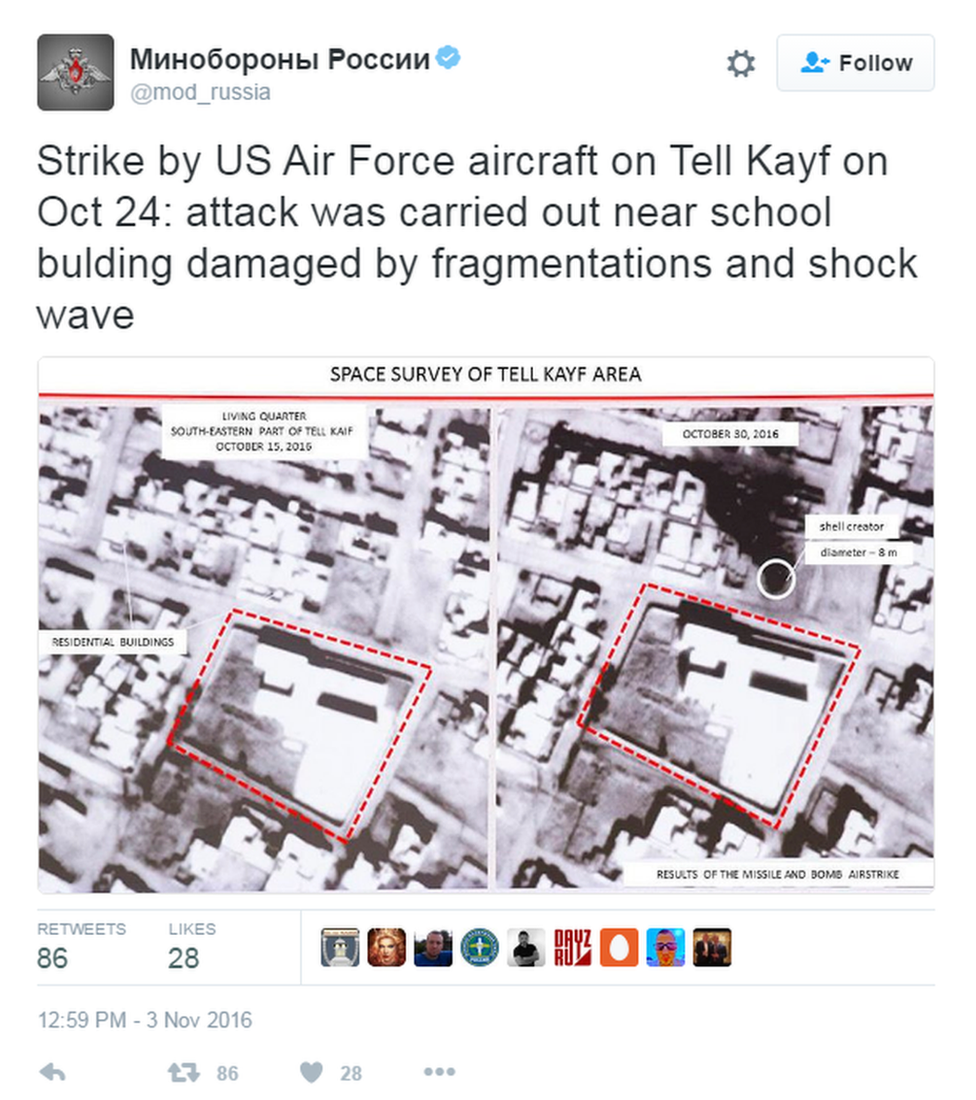
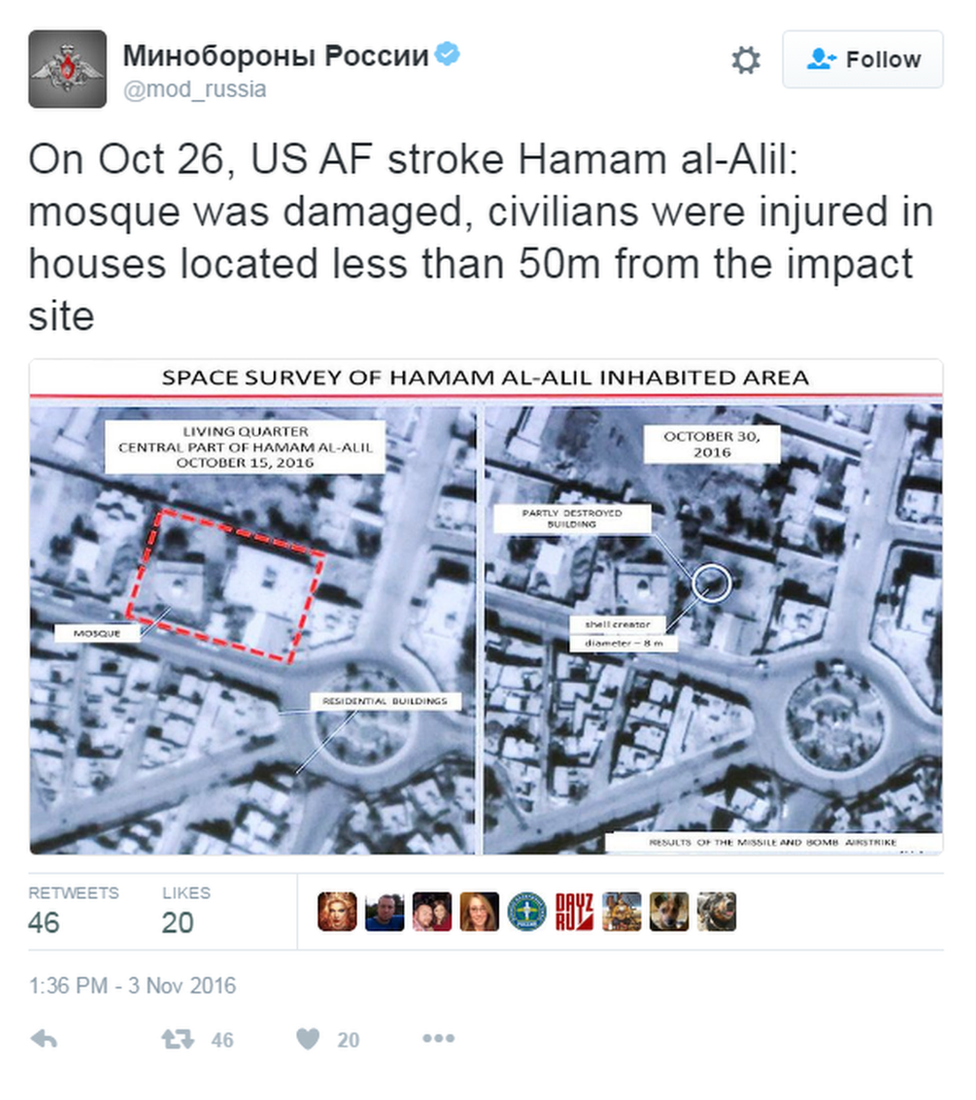
BBC News asked the US military to respond to both these allegations.
In a statement, the United States Central Command said: "Coalition aircraft were not involved in either strike."
There have been many similar allegations from the Russian MoD.
The spokesman for the US-led coalition, Col John Dorrian, told the BBC it was part of what he called a "firehose of falsehoods" aimed at deflecting attention from Russia's "own indiscriminate bombing campaign" in Syria.
He was keen to state America and its allies had been using only precision-guided weapons, directed by lasers and GPS.
In contrast, he said, Russia had been using largely unguided "dumb bombs".
While few in the media seem to have taken Russia's allegations seriously, they have been reported by Russian media and may raise doubts about the effects of the American-led air campaign against IS.
The US is so far the only country engaged in the fight against IS to accept it has caused civilian casualties.
The Pentagon says US air strikes "may" have killed 119 civilians since the bombing campaign started in 2014.
'Credible partner'?
The London-based NGO Airwars believes the true figure is much higher. Using reports from the ground, it estimates that US-led coalition air strikes have killed at least 1,841 civilians.
But Airwars also believes the Russian bombing campaign in Syria may have caused between 7,004 - 8,960 civilian deaths. However, so far Moscow has not even accepted that it has caused one civilian casualty.
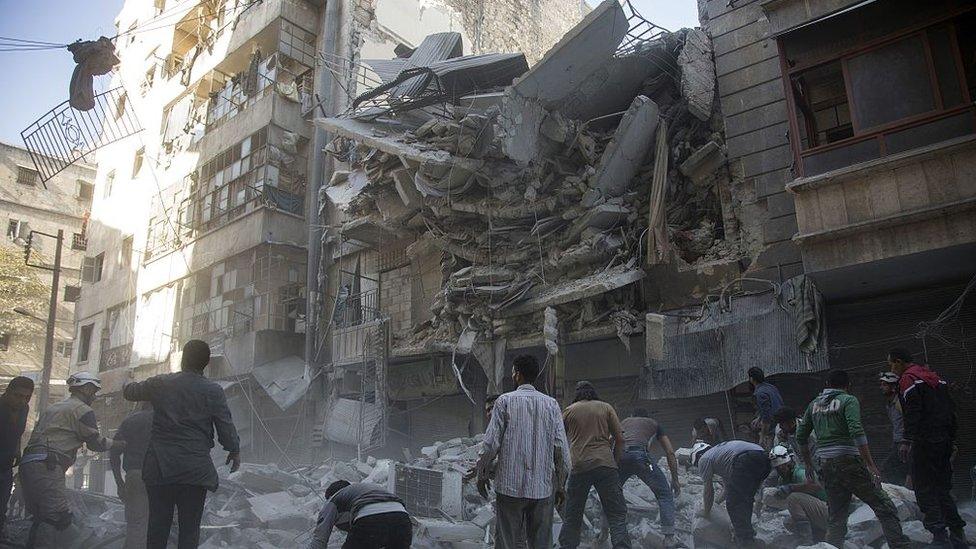
There has been widespread international condemnation of alleged Russian involvement in strikes on rebel-held areas of Aleppo
Eliot Higgins, who is behind the open source investigations website Bellingcat, says the Russian government has a track record of lying when using satellite and aerial imagery.
His latest analysis, Lie in the Sky,, external accuses Russia of using misinterpretation, misidentification, misdating and modification of satellite imagery to twist the facts when accused of hitting civilian targets such as hospitals and schools.
As to why Russia might lie, it appears to be borne out of a frustration at being accused of war crimes by the West.
In retaliation, Russia's Ministry of Defence has levelled the same accusation against the US-led coalition, external.
This propaganda war of course raises serious questions as the whether a Trump administration can build bridges with Russia.
Luke Coffey, of the centre-right Washington-based think tank the Heritage Foundation, says as long as Vladimir Putin remains in power, the US will not have a "credible partner".
He says President-elect Trump should learn from the mistakes of past US administrations instead of "repeating them again".
- Published16 November 2016
- Published14 November 2016

- Published9 November 2016
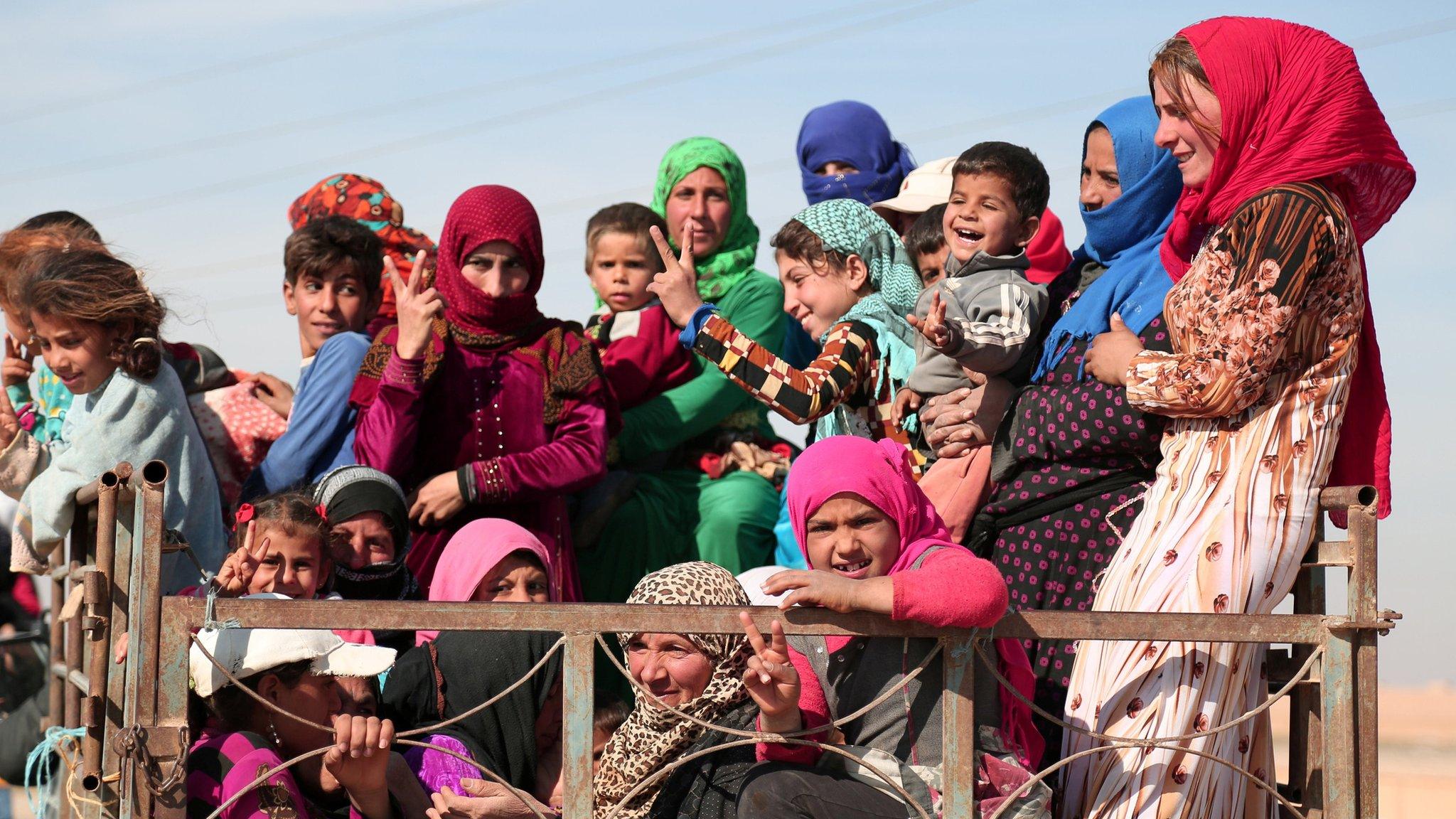
- Published11 October 2016
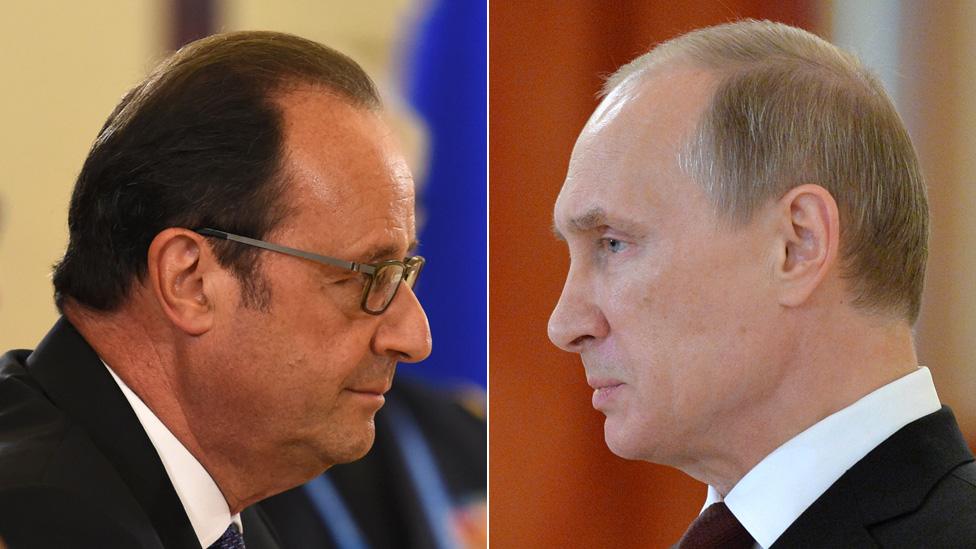
- Published30 September 2016
- Published10 August 2016
